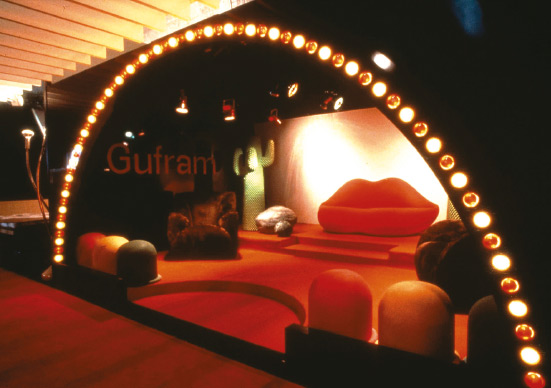Gufram is an Italian interior design brand globally known for pushing the limits of industrial design. With its radical design spirit and nonconformist experimentation linked to aesthetic, technological and material research, Gufram created interior design icons that have entered our collective imagination: playful, subversive and provocative products with a POP soul, purposely designed as anti-design objects.
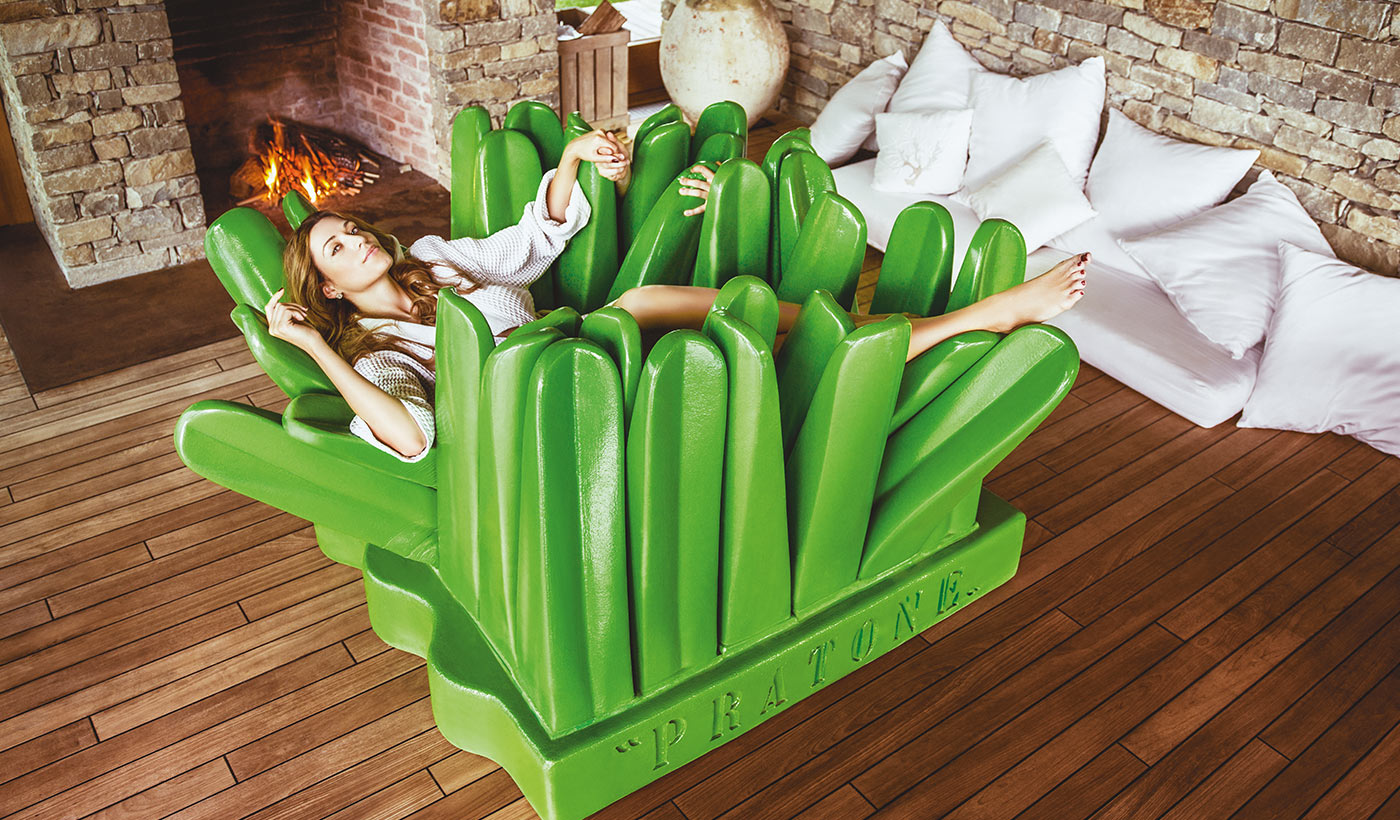
Pratone by Ceretti / Derossi / Rosso 1971.
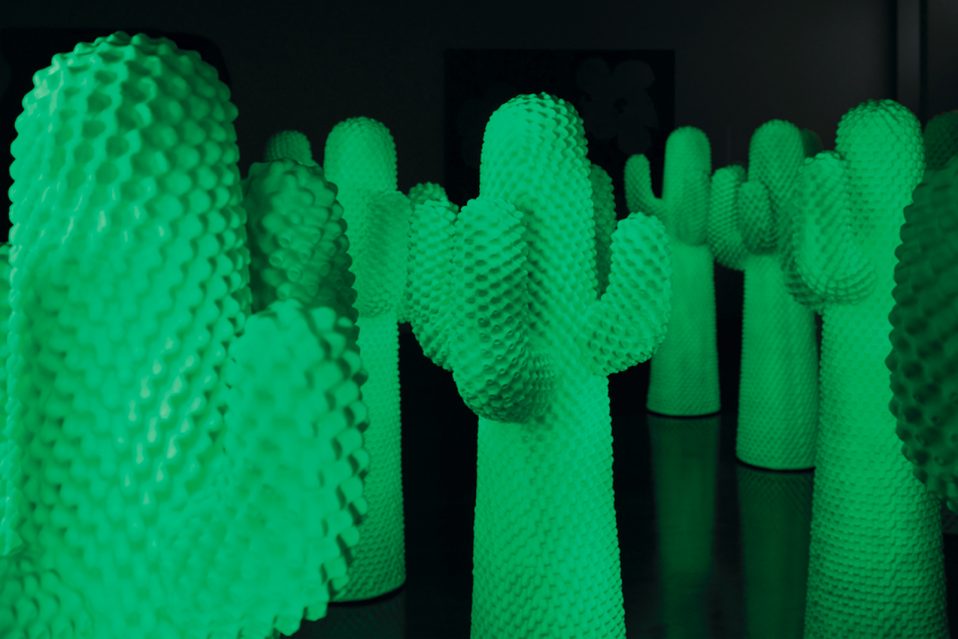
Cactus by Drocco/ Mello 1972.
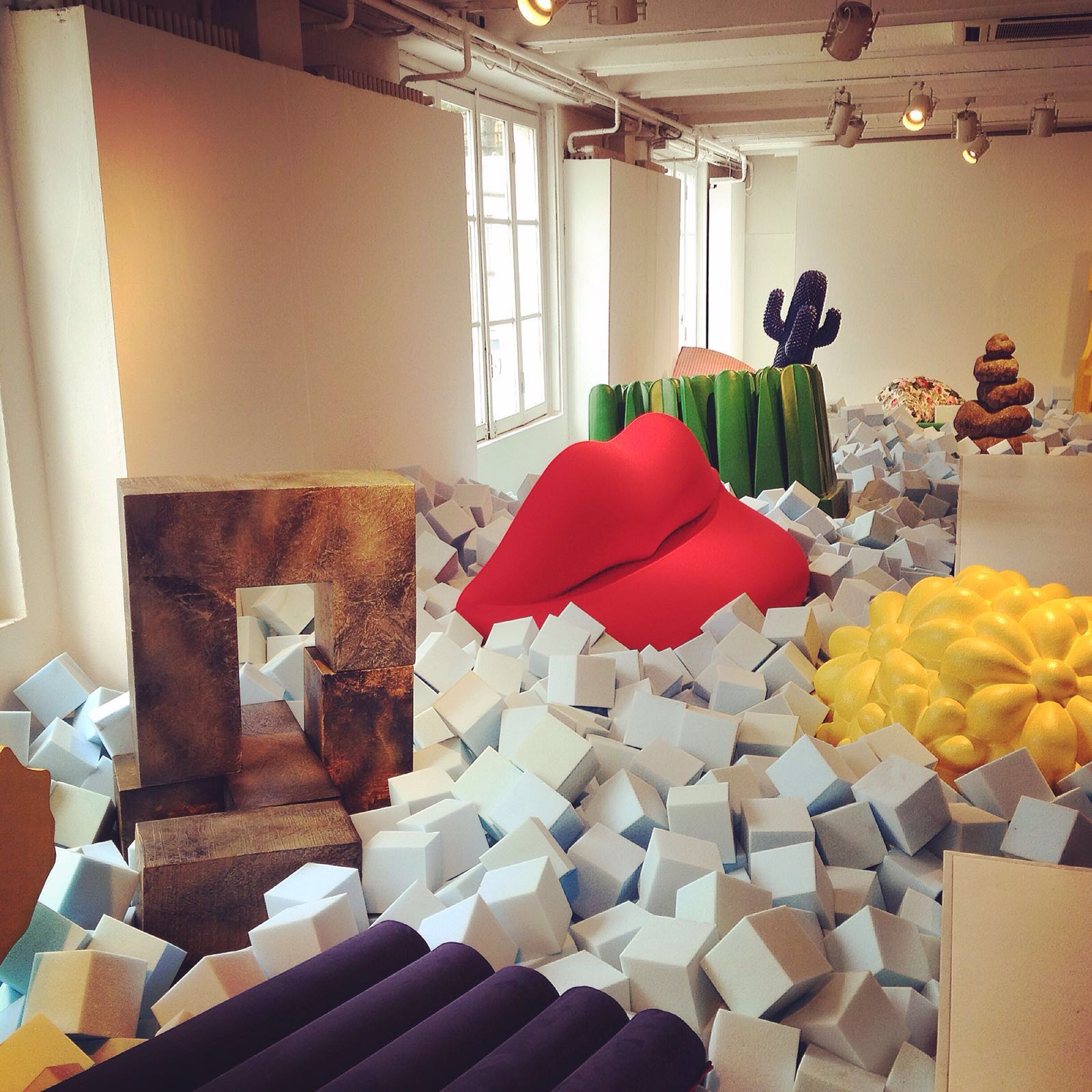
Design that goes against the tide
Gufram was born in Turin as an artisanal entity, where craftsmen specializing in upholstery, cabinet-making and furniture padding met the artistic and international avant-garde, with the goal to create a new kind of modern furniture. Since 1966, Gufram has been producing design icons that are unique in form and expression, thanks to the merging of industrial and artisanal design and the imaginative flair of the artist.
Gufram’s unmistakable furniture, such as the Bocca sofa, the Pratone chaise lounge, and the Cactus hall tree, just to name a few, are also considered domestic sculptures, because they bridge the artistic and the design worlds. These unique items are now displayed in the most beautiful houses and most renowned museums in the world.
Today, Gufram has once again become an important and influential voice marching to a different drummer. With its nonconformist approach, it gives birth to new style icons outside the world of interior design. It has flourished in all design fields, from fashion – an example of which is the Moschino-kissed Gufram collection – to the automotive – its project with Citroën – to everything related to contemporary aesthetics, up to the recent encounter between design and taste that seals its collaboration with Lavazza.
The challenge to produce innovative and unusual shapes has allowed the company to refine its unique production techniques. In addition to their mastery of the use of polyurethane, Gufram has also developed and patented a special finish: Guflac (trademark symbol) – the true essence of the company’s artisanal spirit. This special paint application makes surfaces more uniform, cohesive and elastic through a precise and meticulous manufacturing process, in which it is possible to create soft and sleek forms that otherwise would be impossible to cover.
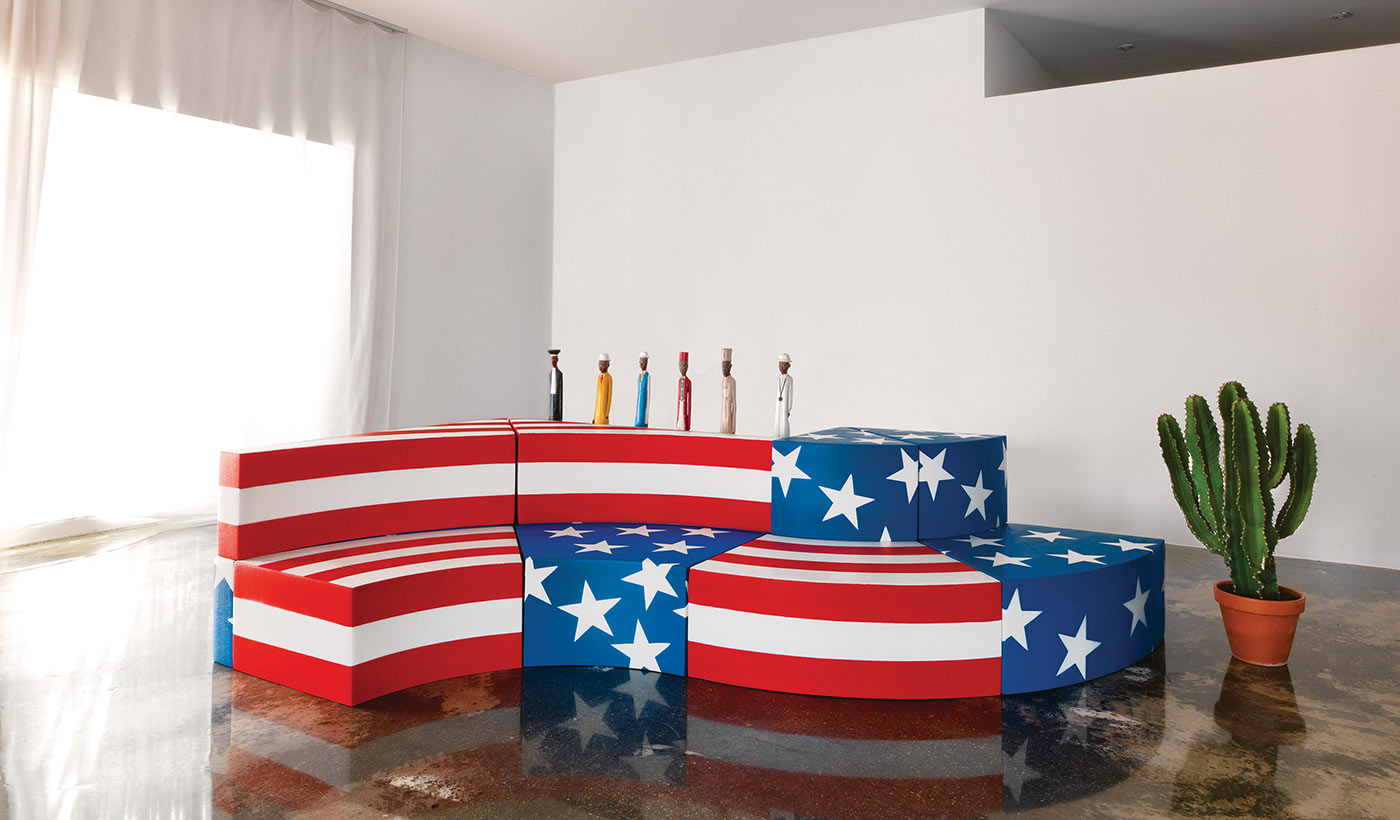
Leonardo by Studio 65 1969.
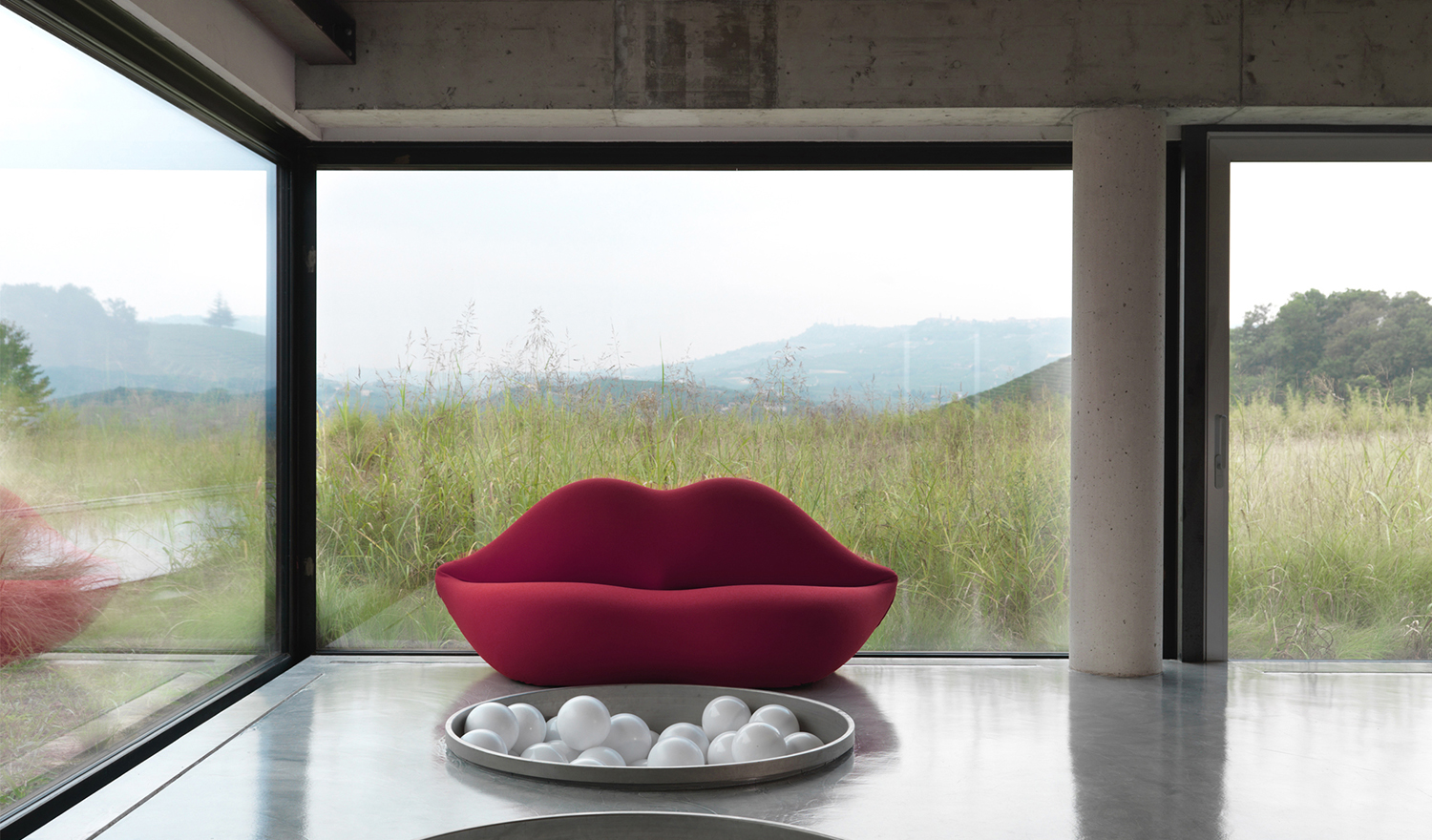
BOCCA® by Studio 65 1970.
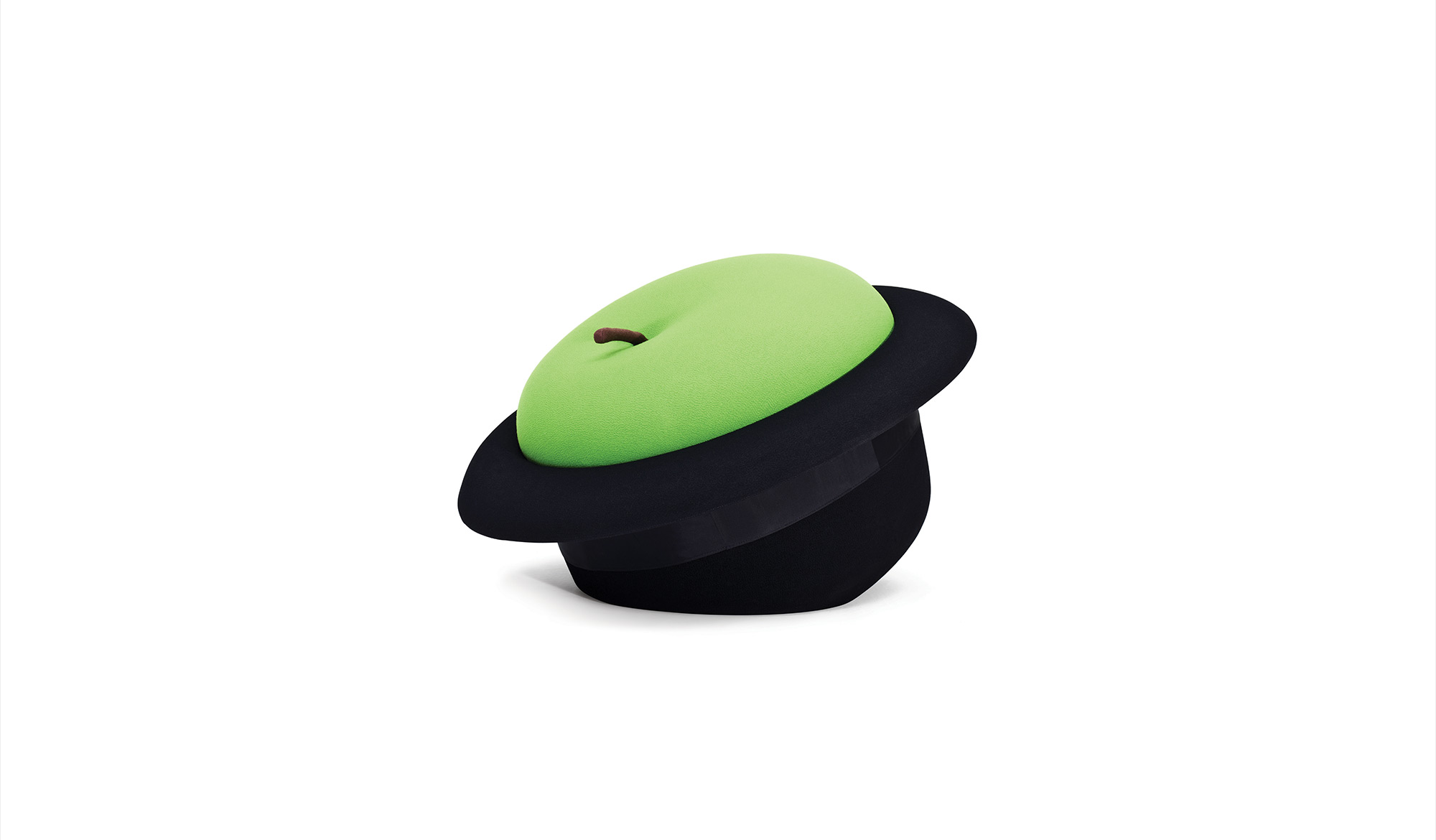
MAgriTTA by Sebastián Matta 1970.
GUFLAC® the secret for a unique production
After the preparation of polyurethane surfaces with precision tools and a first saturation phase, up to 12 Guflac layers are applied by hand. Any small difference in the finished product is a guarantee of the uniqueness of every single handcrafted item. Depending upon the finishing method used, Guflac’s application may make the product suitable for outside use.
Therefore, when it is not a question of furniture upholstered in fabric or parts made with different materials, Gufram icons from every collection are made by sculpting flexible polyurethane foam, which is then finished or decorated by hand with Guflac (trademark symbol) support. Examples of this are the grotesque tombstone-shaped stools, The End, from the Toiletpaper collection and the Functional Pop seat Torneraj. Sculptural icons, include the legendary Cactus in all its editions, the incredible Pratone and the most recent Broken Mirror imagined from Snarkitecture.
